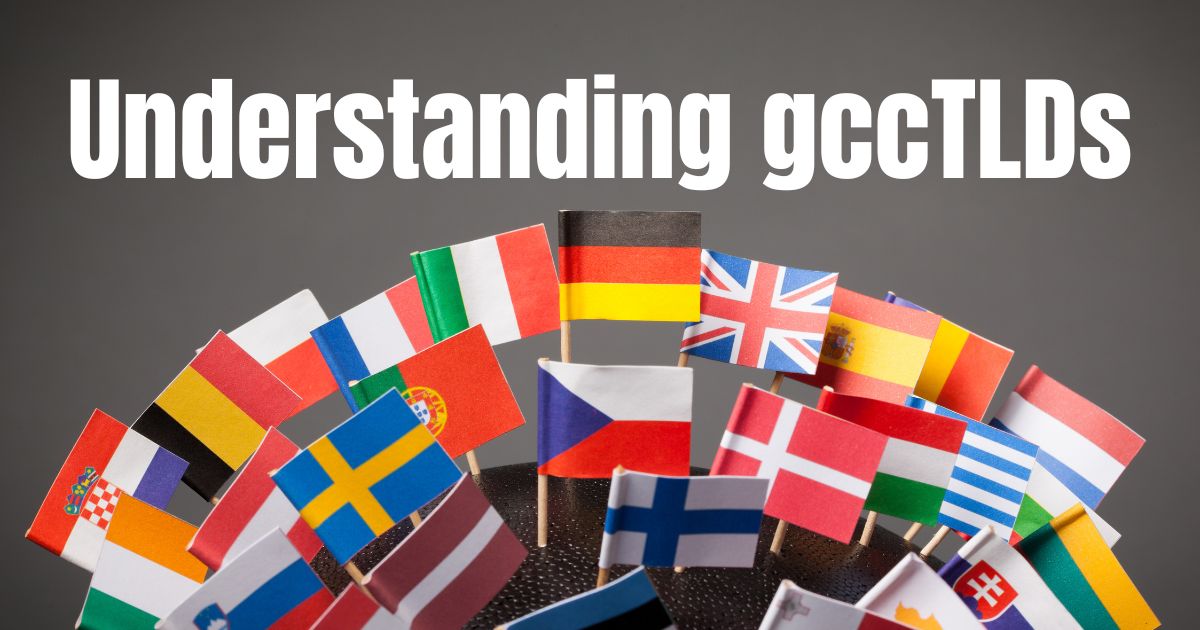Discover how gccTLDs like .co, .io, and .ai have transitioned from country-specific to globally recognized domains and their impact on SEO.

When you navigate the world of the internet, one of the first things you'll encounter is the domain name of the website you're visiting. It usually ends with familiar extensions like .com, .org, or .net. These endings are known as top-level domains (TLDs). As the internet evolves, the categorization and treatment of these domains, particularly by major search engines like Google, becomes more intricate. Enter the concept of gccTLD.
What is gccTLD?
A geographically targeted top-level domain (ccTLD) stands for "country code Top-Level Domain." Originally, these were designed to represent and be specific to individual countries or territories. For instance, .us is for the United States, .ca for Canada, and .uk for the United Kingdom.
However, over time, some of these ccTLDs gained popularity outside their geographic specificity and began being used more generically. Hence the term "generic country code Top-Level Domains" (gccTLDs). These are ccTLDs that are treated as generic by search engines because of their widespread use beyond geographical confines.
How do search engines treat gccTLDs?
The treatment of gccTLDs is particularly significant when it comes to search engine optimization (SEO). Traditionally, ccTLDs were a strong signal for geographic targeting. For example, a .fr domain would strongly signal to search engines that the website is targeted towards users in France.
However, with gccTLDs, search engines like Google recognize that these domains are used for more general or global content, not just country-specific information. Therefore, they are treated more like gTLDs (generic top-level domains like .com, .org, or .net) than ccTLDs.
Known gccTLDs
Here are some of the well-known TLDs that Google treats as gccTLDs:
- .ai: Originally for Anguilla
- .co: Originally for Colombia
- .io: Originally for the British Indian Ocean Territory
- .me: Originally for Montenegro
- .tv: Originally for Tuvalu
A Note on .ai Domains
Recently, as of June 2023, Google has started treating .ai domains – initially representing Anguilla – as generic top-level domains (gTLDs) in search results. This move is a nod to the rising prominence of artificial intelligence (AI) and the desire of businesses worldwide to have domains that align with this tech trend. Hence, businesses can now use .ai domains to establish a global online presence without being geographically limited in search.
Relevant Resources:
For more detailed insights, consider exploring the following resources:
- Google’s Geotargetable domains list - An up-to-date list of gccTLDs and how Google treats them.
- ICANN's description of "open ccTLDs" - A broader overview of country code top-level domains that can be registered by anyone.
- Google's announcement on .ai domains - Google's Gary Illyes shares an interesting fact about how Google treats .ai domains in terms of SEO.
- Wikipedia on Generic ccTLDs - A comprehensive list and explanation of gccTLDs.
In conclusion, while the core purpose of ccTLDs was to provide geographical specificity, the evolution of the internet and global business has transformed some of these into gccTLDs, opening up new avenues for businesses and individuals to shape their online identities.